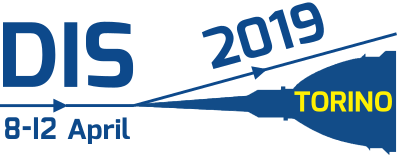Speaker
Description
We calculate the cross section for the production of $D$ mesons and $\Lambda_{c}$ baryons in pp collisions at the LHC. The cross section for production of $c\bar c$ pairs is calculated within the $k_{T}$-factorization approach. We show that our approach well describes the $D^0$, $D^+$, and $D_s$ experimental data. We try to understand recent ALICE and LHCb data for $\Lambda_{c}$ production with the $c \to \Lambda_{c}$ independent parton fragmentation approach. Although one can agree with the ALICE data using the standard estimation of model uncertainties, one cannot describe simultaneously the ALICE and the LHCb data with the same set of parameters. The fraction $f_{c \to \Lambda_{c}}$ necessary to describe the ALICE data is much larger than the average value obtained from $e^+e^−$ or $ep$ experiments. No drastic modification of the shape of the fragmentation function is allowed by the new ALICE and LHCb data for $\Lambda_{c}$ production. We also discuss a possible dependence of the $\Lambda_{c}/D^{0}$ baryon-to-meson ratio on rapidity and transverse momentum as recent observations by the ALICE and LHCb collaborations seem to suggest. Three different effects are considered: the value of the $\varepsilon_{c}^{\Lambda}$ parameter in the Peterson fragmentation function for $c \to \Lambda_{c}$, a kinematical effect related to the hadronization prescription, and a possible feed-down from higher charmed-baryon excitations. It seems very difficult, if not impossible, to understand the ALICE data within the considered independent parton fragmentation scheme.
[1] R. Maciuła and A. Szczurek, Phys. Rev. D98, no. 1, 014016 (2018).




